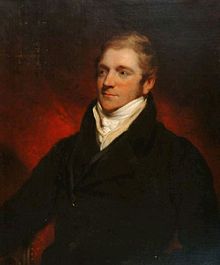Thomas Tooke
| Thomas Tooke | |
|---|---|
 |
|
| Born |
28 February 1774 Kronstadt, Russian Empire |
| Died | 26 February 1858 (aged 83) London, England |
| Nationality | English |
| Field | Econometrics |
| School or tradition |
Classical economics |
Thomas Tooke (/tʊk/; 28 February 1774 – 26 February 1858) was an English economist known for writing on money and economic statistics. After Tooke's death the Statistical Society endowed the Tooke Chair of economics at King's College London, and a Tooke Prize.
In business, he served several terms between 1840 and 1852 as governor of the Royal Exchange Corporation. Likewise, he served for several terms as chairman of the St Katharine's Docks company. He was also an early director of the London and Birmingham Railway.
Born at Kronstadt on 29 February 1774, he was the eldest son of William Tooke, at that time chaplain to the British factory there. Thomas began his professional life at the age of fifteen in a house of business at St Petersburg, and subsequently became a partner in the London firms of Stephen Thornton & Co., and Astell, Tooke, & Thornton.
He took no serious part in discussion of economic questions until 1819, when he gave evidence before committees of both Houses of Parliament on the resumption of cash payments by the Bank of England. Tooke was one of the earliest supporters of the free trade movement which assumed the form in the petition of the merchants of the City of London presented to the House of Commons by Alexander Baring, on 8 May 1820. This document was drawn up by Tooke; and the circumstances which led to its preparation are described in the sixth volume of his History of Prices. Lord Liverpool's government, especially through William Huskisson after 1828, moved in the direction sought.
...
Wikipedia
